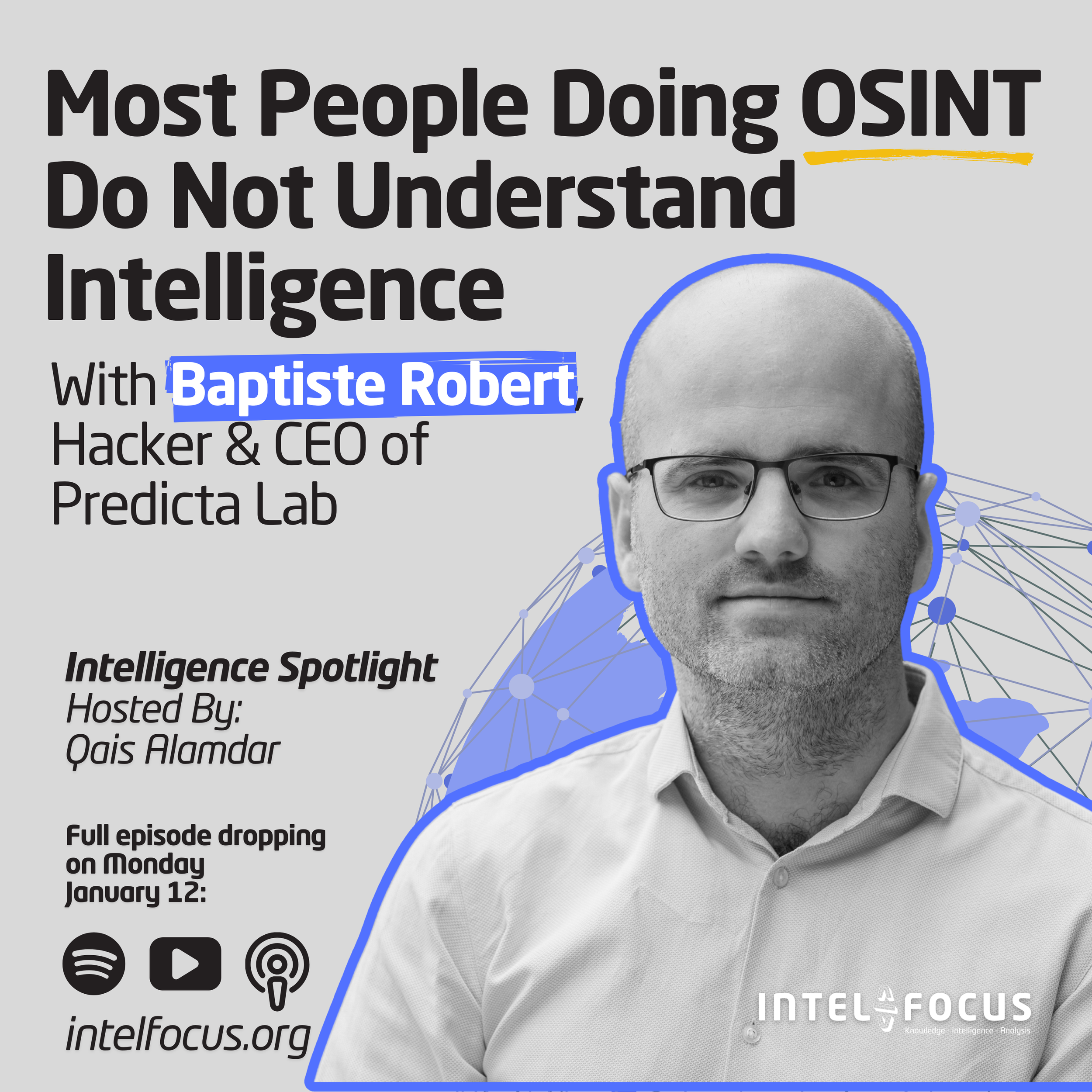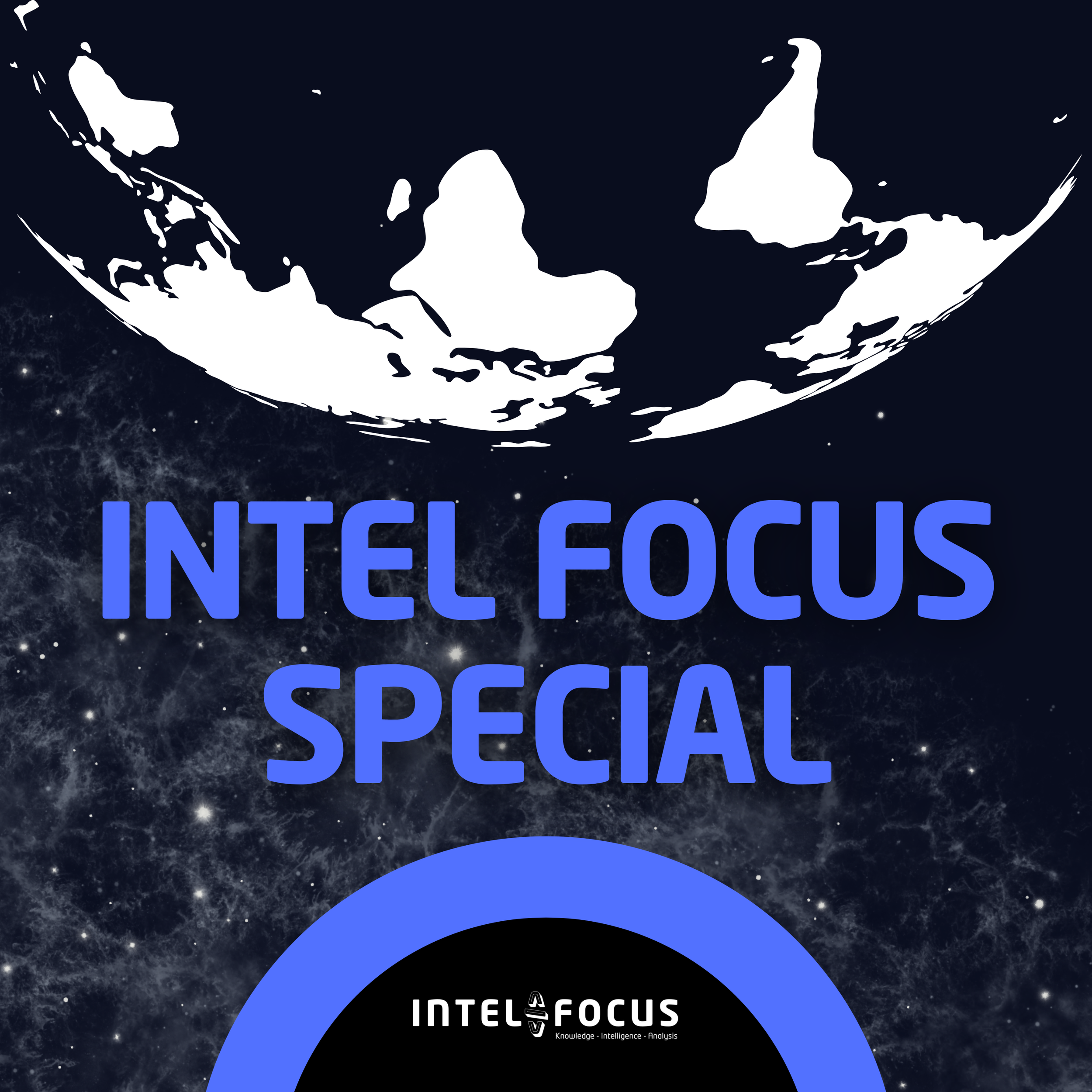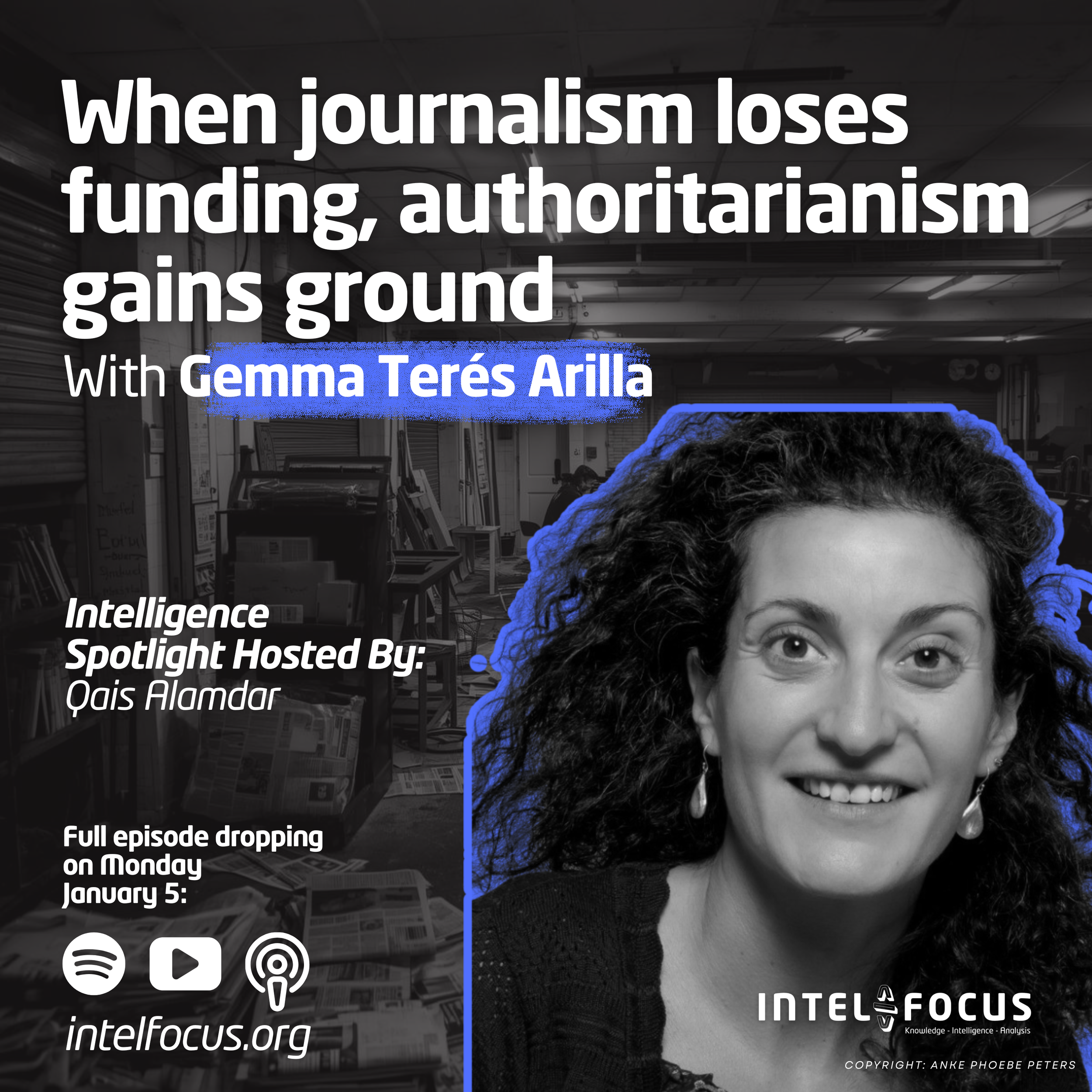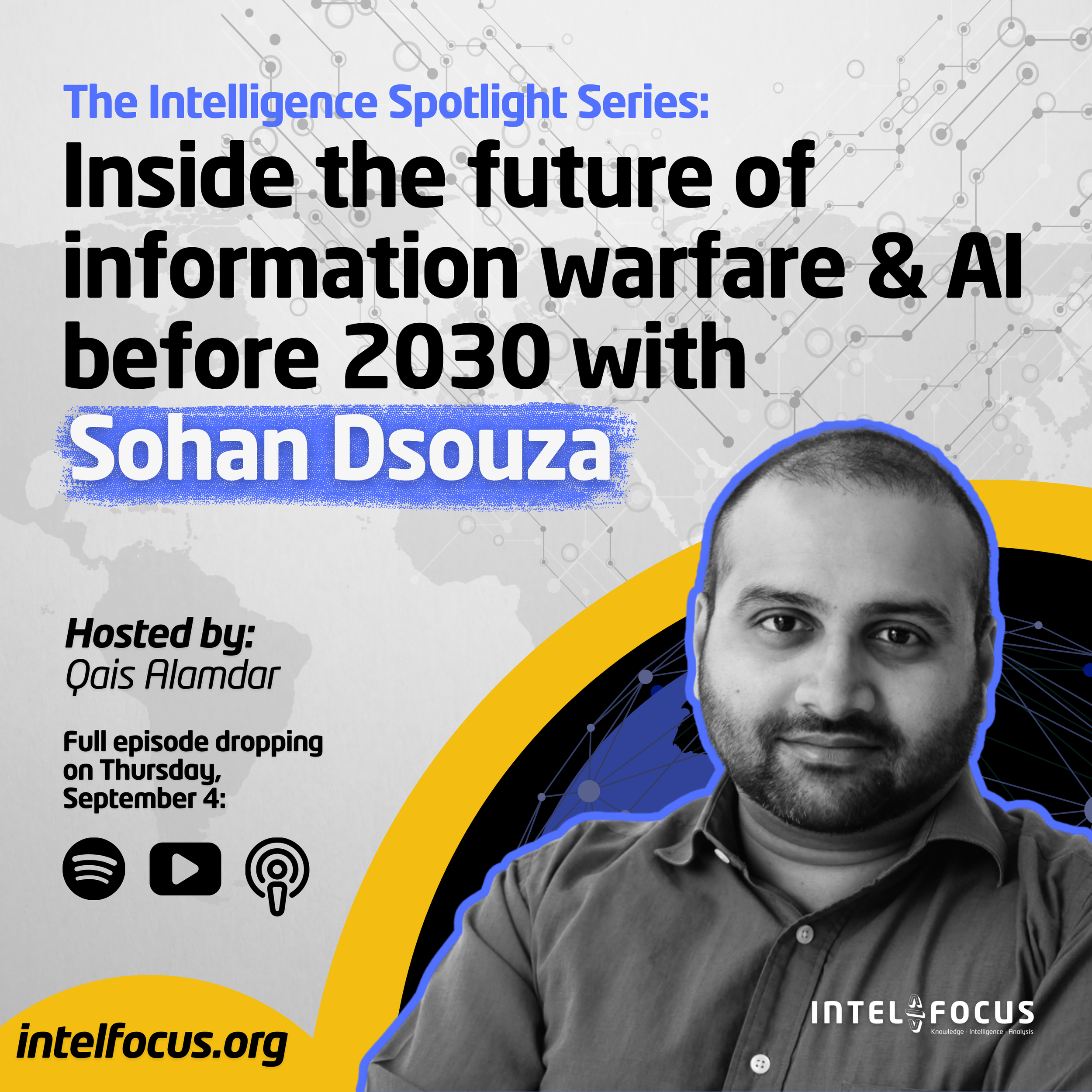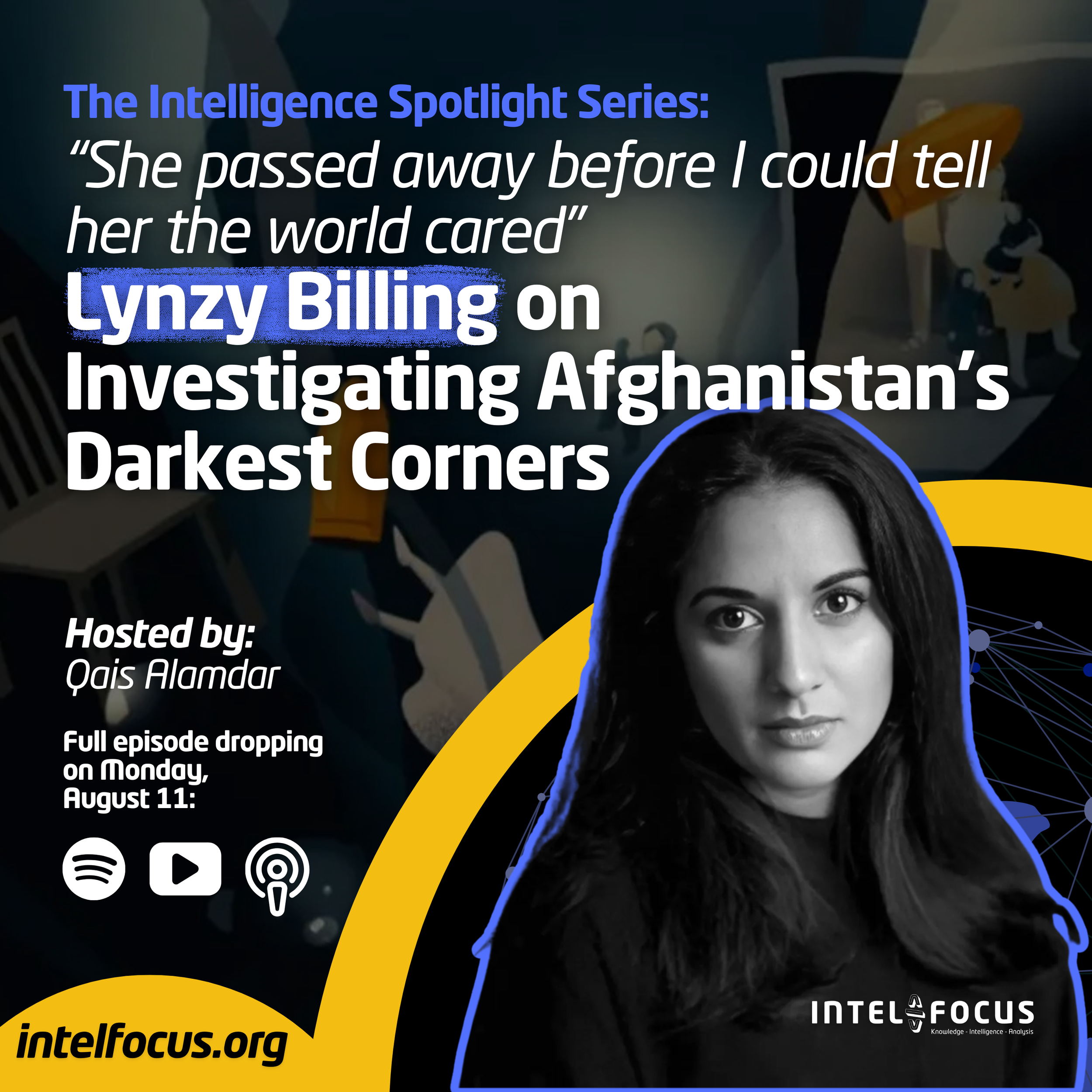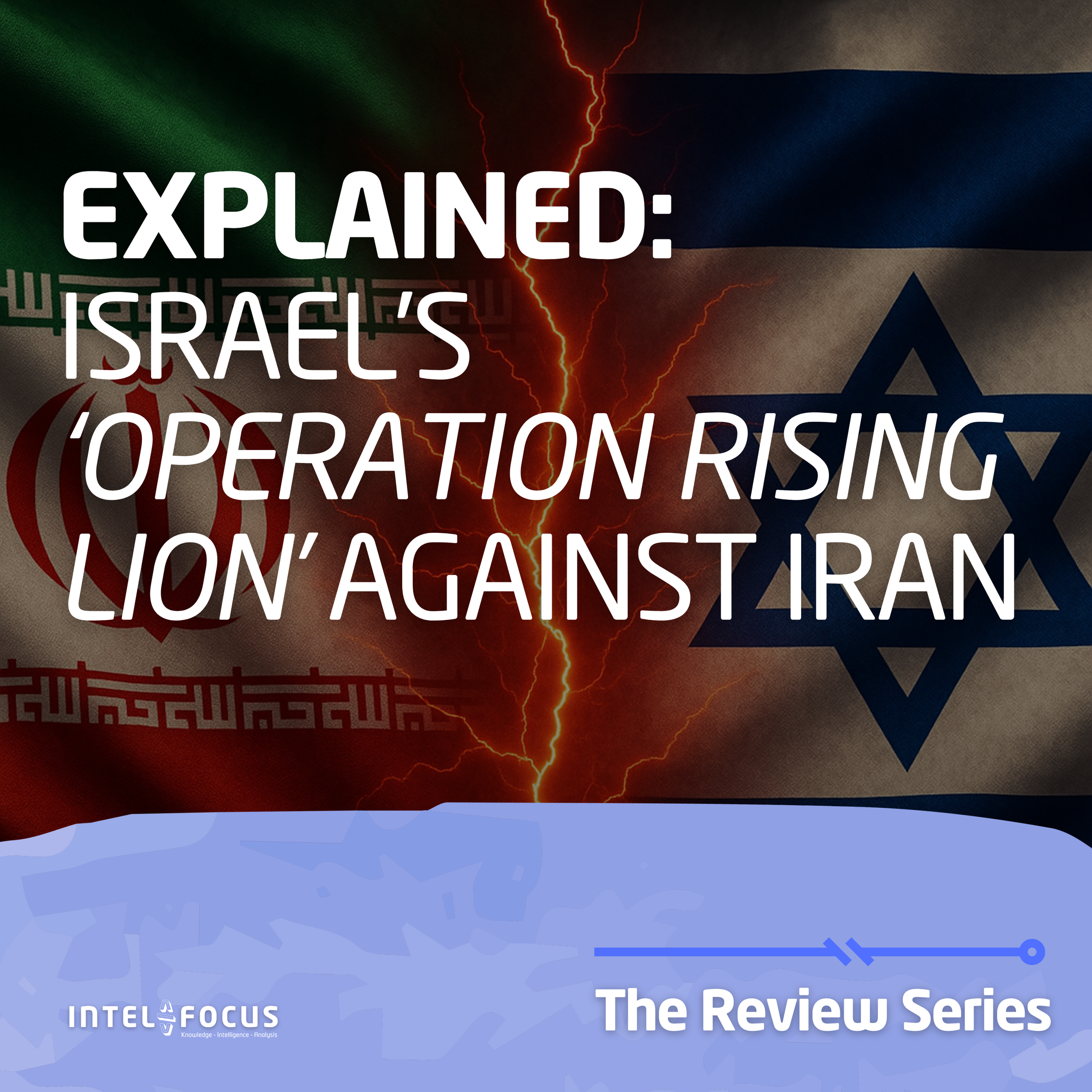Most People Doing OSINT Do Not Understand OSINT | Baptiste Robert
Hacking is often framed as a threat. In public debate, it appears as a breach, an intrusion, a crime. But, as Baptiste Robert argues, hacking at its core is about understanding systems, how they work, how they fail, and where power hides.
Voices from Venezuela: Personal Stories Under Maduro
In this Intel Focus Special, the focus was not on hot takes or ideological camps, but on lived reality. Joined by a Venezuelan guest speaking anonymously for safety, the conversation explored why shock, relief, fear, and doubt can coexist simultaneously.
When Journalism Loses Funding, Authoritarianism Gains Ground
Independent journalism is often discussed in national terms, press freedom here, censorship there. But in the latest episode of Intelligence Spotlight, Gemma Terés i Arilla makes a different point: journalism collapses as a system, not as isolated cases.
This Is The Invisible War We Are All Losing, Daniel Iriarte Explains
In this episode, Qais sat down with Daniel Iriarte, journalist, international analyst, and author of Cognitive Wars, to explore how disinformation has evolved into a new kind of warfare — one fought not for land, but for perception.
The Biggest Lie You’ve Been Told About the Dark Web, Shay Maman Explains
The internet most of us know is deceptively small. News sites, shopping platforms, TikTok feeds and Instagram reels form only the surface. Beneath lies a vast hidden ecosystem, places where criminal markets, extremist propaganda and anonymous dissent intersect. This is the world that intelligence researcher Shay Maman has spent his career investigating.
Inside the Future of Information Warfare & AI Before 2030 With Sohan Dsouza
Sohan, who has studied influence operations and artificial intelligence ethics through an OSINT lens, told The Intelligence Spotlight podcast that modern disinformation campaigns are less about persuasion and more about disruption. They thrive on fear, doubt, and polarization—on making people believe that “the other side is more gullible.”
How Syria’s War Crimes Are Investigated? Kornelia Georgieva Explains
Kornelia’s path into international investigations was shaped by the Arab Spring. As a student in Jordan in 2011, she witnessed mass protests and state responses first-hand. That experience pushed her towards human rights and justice work. Her first role with CIJA focused on documenting atrocities in Syria.
Lynzy Billing on Investigating Afghanistan’s Darkest Corners
Lynzy’s current work turns to another overlooked cost of war — environmental damage. In both Iraq and Afghanistan, she says, US military bases left toxic legacies: burn pits belching smoke, waste dumped on farmland, rivers contaminated.
Diplomacy Without a State With Mahmoud Saikal, Former Permanent Representative of Afghanistan to the United Nations
“The solution is not just to accept refugees but to restore Afghanistan as a habitable country,” he said. “We must talk about legitimacy. Without it, everything — soft power, diplomacy, economic progress — is cosmetic.”
Tracking Money, Misogyny, and Misinformation with the OSINT Lens of Sarah Cammarata
Social media, often underestimated, has become a useful source in connecting digital footprints. “You might find a company’s Instagram revealing links that no corporate filing ever would.”
The Review series: Israel’s ‘Operation Rising Lion’ against Iran explained
Israel's operation targeted multiple nuclear and military installations across Iran, including the Natanz nuclear site, missile storage facilities, and air defence systems. Strikes were also reported in densely populated residential areas of Tehran, resulting in high-profile casualties: top commanders of the Iranian Revolutionary Guard Corps, nuclear scientists, and individuals close to Iran’s Supreme Leader, Ayatollah Khamenei. The Iranian government has confirmed the deaths of at least six nuclear scientists and over 20 mid-ranking military officials.
OSINT, AI, and the Emotional Cost of Watching Everything with Jenna Dolecek
When asked about the rise of AI in OSINT, she acknowledges its efficiency but warns of risks: “We've caught it hallucinating, we've caught it lying, making up fake legal cases and citations.” While AI can automate tedious tasks, Jenna believes the human element remains irreplaceable.
The Evolution of the Turkistan Islamic Party
In the latest episode of The Review Series, Intel Focus co-hosts Qais Alamdar and Rajab Taieb unpacked a development that has gone largely unnoticed in mainstream coverage: the apparent disbanding of the Turkistan Islamic Party (TIP) in Syria, and its fighters’ integration into the country’s newly restructured army.
The importance of fact-checking for activists and human rights defenders
In a world saturated with conflicting claims, rapid news cycles, and AI-generated media, the truth doesn’t just need defenders — it needs a method. That’s precisely what the Intelligence Spotlight Series tackled in its latest panel featuring Nick Vaughn of Reuters Fact Check and journalist-activist Layla Belhaj Mohammed. From dissecting viral misinformation to the ethics of surveillance, the conversation was both a sobering reality check and a hopeful call for digital responsibility.
How neuroscience can help us combat misinformation and cognitive bias with Faissal Sharif
Stress, trauma, and anxiety — especially during societal crises — narrow our cognitive flexibility. Under pressure, the brain reverts to old patterns, and misinformation finds its grip. The faster and more emotionally charged our information environments become, the harder it is for people to slow down and critically assess what they’re consuming.
How open-source intelligence shapes modern investigative journalism with Ben Heubl
In a world where your source could be a Russian dissident or a soldier in a conflict zone, the rules of engagement have changed. “You can’t just send two lines saying who you are and expect a response. You need to understand who you’re talking to, what motivates them, and whether they can trust you,” Ben explains.
How Intelligence Operations and Militancy Evolve in a Post-Taliban Afghanistan with Sarah Adams
Surprisingly, Sarah admits she wasn't exactly the academic type in high school. “I liked sports more than anything,” she laughs. But her career took a sharp turn when she joined the CIA, initially as an analyst. Just weeks into the job, she knew she wanted to be in operations, not writing reports. She told her boss, who promptly moved her into a targeting officer role.
Citizen Journalism & Grassroots Investigations with Neus Vidal Martí from SEEK Initiative
Neus is passionate about one particular mechanism: access to information laws, sometimes known as Freedom of Information Acts (FOIA).
“These laws exist in over 100 countries. They allow any citizen to request data held by public authorities,” she says. “It could be something as basic as asking for hospital waiting times or data on school closures.”
Migration and Human Rights Journalism with May Bulman from Lighthouse Reports
“We couldn’t go to Afghanistan. The Taliban denied access. So we worked with remote sources, families, survivors, and a network of testimonies,” she says. “We combined personal accounts with visual evidence — sometimes CCTV footage, sometimes injury photos, sometimes images of bodies. And then we verified everything with OSINT methods — using sun shadows, geolocation, building analysis.”

